Lack of coordination as a key barrier to realizing the human rights of all children in Morocco
Despite significant progress made by Morocco in realizing children’s rights, including education and health, as assessed by UNICEF in its Situation Analysis from 2019, disparities persist based on socio-economic backgrounds, living environments, and socio-cultural norms, marked by prevalent gender stereotypes. Children from socially disadvantaged families, rural areas, outskirts of cities, with disabilities, and girls are particularly vulnerable to child labour, early forced marriage, violence, trafficking, and the risk of being unregistered at birth, abandoned, separated from their parents, adopted under the Kafala regime, or living on the streets. These violations perpetuate a cycle of human rights abuses, discrimination, and disempowerment. Morocco also faces specific challenges as an important stopping point for migrants traveling to Europe, with migrant children, especially unaccompanied ones, frequently experiencing violations of their rights to education, health, food, and subjected to abuse, exploitation, and denial of access to justice.

Within this context, the UNICEF Situation Analysis report highlights a major obstacle to further implementation of the UN Convention on the Rights of the Child (UNCRC) in Morocco: the lack of coordination among numerous child rights actors, both institutional and civil society. Until recently, there was no national civil society coalition bringing together voices, experiences, and resources to advocate for child rights at all levels in Morocco. Our 2019 Study on the Global Status of Engagement in Reporting to the UN Committee on the Rights of the Child emphasizes the pivotal role of national child rights coalitions in influencing the work of the UN Committee on the Rights of the Child (CRC Committee). These coalitions are instrumental in monitoring the Convention’s implementation, submitting alternative reports to the Committee, and advocating for child rights, thereby influencing change at the national level.
The Study underscores the positive impact of civil society engagement, as recommendations made by civil society are often included in the CRC Committee’s concluding observations. Case studies on follow-up activities by NGOs demonstrate how civil society engages cyclically in the reporting process and utilizes the Committee’s recommendations for national-level advocacy work. The participation of civil society organizations (CSOs) and children ensures diverse voices and perspectives are considered in the review of States parties’ obligations under the UNCRC and its Optional Protocols. This inclusive approach allows the CRC Committee to issue targeted recommendations to improve the situation of children’s rights on the ground, focusing on the most urgent issues.
Supporting the establishment and strengthening of the CSO coalition in Morocco
We have been actively supporting the establishment and strengthening of national child rights coalitions as part of our Strategic Plan for 2020-2024. Our goal, outlined in Strategic Priority 2, is to enhance coordinated and long-term engagement between child rights coalitions and the CRC Committee, as well as other UN mechanisms (Strategic Priority 3), to ensure sustained civil society pressure for the realization of child rights in targeted States.
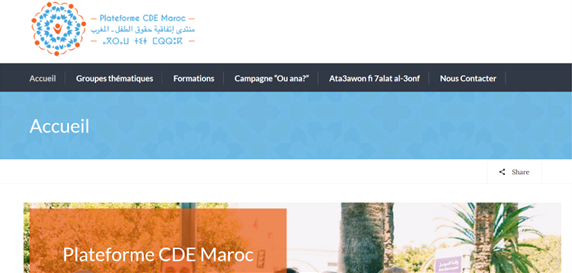
In Morocco, the first-ever child rights coalition, the Plateforme pour la Convention des Droits de l’Enfant, was established in 2017 by 18 national and international child rights NGOs. Since 2019, we have been on a journey to support the coalition’s development and strengthen civil society’s voice for children’s rights in Morocco at the national, regional, and international levels.
We kick-started our collaboration by facilitating a capacity-building workshop in January 2019, focusing on reporting to the CRC Committee and identifying advocacy opportunities at the UN. This training equipped PCDE members with a deeper understanding of the reporting process and how to follow up on the Committee’s recommendations to the State of Morocco made in 2014. It laid the foundation for the platform’s ongoing monitoring and advocacy efforts, establishing a mutually beneficial partnership with us. Subsequently, we assisted the PCDE in starting to develop a comprehensive advocacy plan, and the coalition applied for Child Rights Connect membership. In 2020, the PCDE officially became part of our Network, providing a sustained platform for collaboration and learning. We have since been providing strategic advice and targeted support through regular exchanges with the PCDE.
Our support extends beyond enhancing the PCDE’s thematic expertise and its ability to use the UN human rights system for driving change. In 2020, we helped the PCDE Secretariat develop a mapping of its members’ geographical and thematic coverage, fostering collaboration within the coalition and strengthening its functioning. Furthermore, we conducted an online training in October 2020 on child participation in reporting to the CRC Committee, empowering 9 coalition member organisations to engage children in the preparation and submission of the next report. The usefulness of the workshop was evident as PCDE members expressed their strong commitment to involving children in the upcoming CRC reporting cycle. Throughout the process, we also kept the PCDE informed of the changing timeline of Morocco’s reporting to the CRC Committee, enabling the coalition to adjust its strategy and make the most of this advocacy opportunity. As a follow-up, the coalition is finalising its own Child Safeguarding Policy and Procedure and initiating preparations for an action plan on child participation.
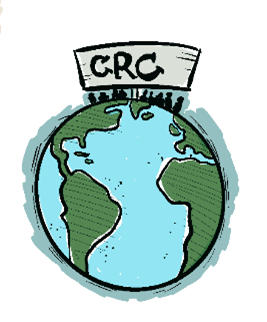
In March 2022, the PCDE submitted its first coordinated submission for the Universal Periodic Review (UPR) process of the Human Rights Council. We provided guidance on the submission, including on how to use our UPR fact sheets, offering insights into the mechanism and practical advice on preparing and submitting a report. To further empower the PCDE, we conducted a two-day in-person capacity-building workshop in Rabat in June 2022. The workshop focused on UPR advocacy, reporting to the CRC Committee under the Simplified Reporting Procedure, child participation in UN engagement, and advancing the rights of child human rights defenders through UN advocacy. The workshop also fostered a discussion among coalition members about the diversity of the PCDE and helped identify institutional and operational challenges to inform a follow-up action plan for strengthening the coalition. As a result of our training, PCDE members actively participated in the UPR pre-session in August 2022. They also organized a meeting on UPR recommendations with Embassies in Rabat in October 2022, generating positive traction on the recommendations from the EU Delegation.
How the national coalition and its members have grown stronger
Our 2019 Study highlighted the risk of instability and lack of sustainability faced by national coalitions, which hindered lasting civil society dialogue with the CRC Committee and sustained international pressure on States. We identified the challenge of maintaining dynamic networks over an extended period of time. However, with our support, the PCDE has started to take steps to overcome these barriers and evolved into a credible and effective coalition with potential for sustainability. The growth in PCDE membership from 18 organisations in 2017 to 29 organizations today is a testament to its credibility and growing convening power. Moreover, the PCDE’s collaboration with the “Comité Rassif,” a group of local NGOs supporting children in street situations in Tanger, for its first UPR submission in 2022 demonstrates its capacity to coordinate beyond the platform and form effective partnerships with other civil society actors.

Our assistance to the PCDE has also facilitated a process of organisational strengthening. Initiatives such as the drafting of a platform-wide Child Safeguarding Policy and Procedure and the initiation of a coordinated advocacy strategy for UN engagement have positioned the PCDE to enhance safe child participation and drive positive change through UN advocacy. A representative from a member organisation expressed how our support has influenced the governance of the coalition, leading to measures aimed at improving its effectiveness:
“The training was useful on several counts to strengthen the capacities of the PCDE. It allowed us to formulate an advocacy strategy for the next phases of the UPR process and the preparation of our report to the CRC Committee. Discussions on child participation enabled us to identify actions to promote child participation within the coalition. Furthermore, the discussions on the weaknesses of the PCDE fostered constructive dialogue during the General Assembly, resulting in decisions and measures to enhance the coalition’s governance.”
Feedback from participants in our training workshops highlights how the coalition and its individual members have been empowered to use UN advocacy as a tool for improving children’s rights in Morocco. For instance, prior to the workshop, a majority of PCDE members surveyed reported a low understanding of the Simplified Reporting Procedure of the CRC Committee. However, after the workshop, 63% of participants reported a significantly improved understanding of the procedure. The coordinator of the PCDE emphasized the value of the training, stating:
“The content of the two-day training was very interesting and useful for the PCDE to continue its actions in favour of child rights. It also prepared us well for meetings with institutions and parliamentarians, particularly regarding our participation in the UPR.”
Individual participants also expressed their appreciation for the knowledge gained, with one representative stating:
“The training enriched my knowledge and helped me better understand the stages, techniques, and timelines for advocacy submissions to the UN.”
What lessons have been learned
Keeping coalition members engaged in the work of the PCDE is a persistent challenge. Many members would not have discovered the value of engaging in UN human rights mechanisms and amplifying their national advocacy if they had not joined the PCDE.
The process of supporting the PCDE’s development as a credible and effective national child rights coalition confirms the findings of our 2019 Study. It demonstrates that a combination of consultations, partnership-building, capacity-building, technical assistance, and strategic support, focused on key UN advocacy opportunities, is crucial for strengthening a coalition in a meaningful way.
Our Network plays a vital role in building the capacity of new or fragile child rights coalitions like the PCDE. As the PCDE is still relatively new and preparing for its first reporting process to the CRC Committee involving direct participation of children, targeted support is essential. We aim to ensure that the voices of Moroccan children are effectively heard by the CRC Committee in a safe, empowering, inclusive, and sustained manner.



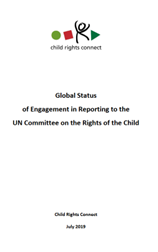
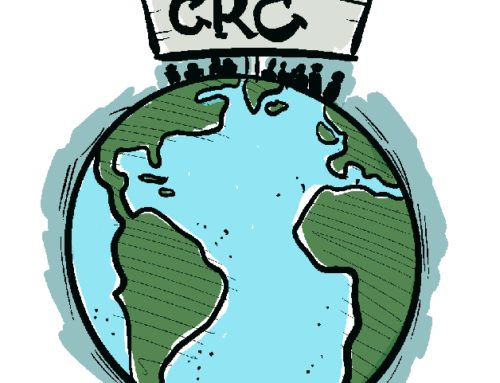

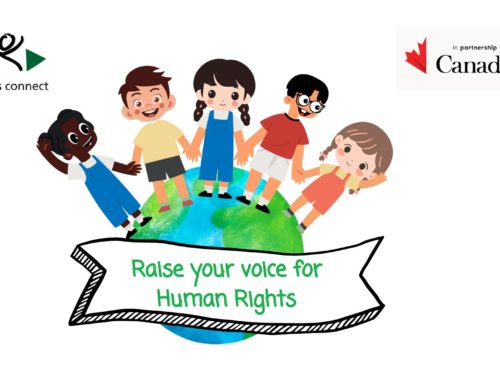




Leave A Comment